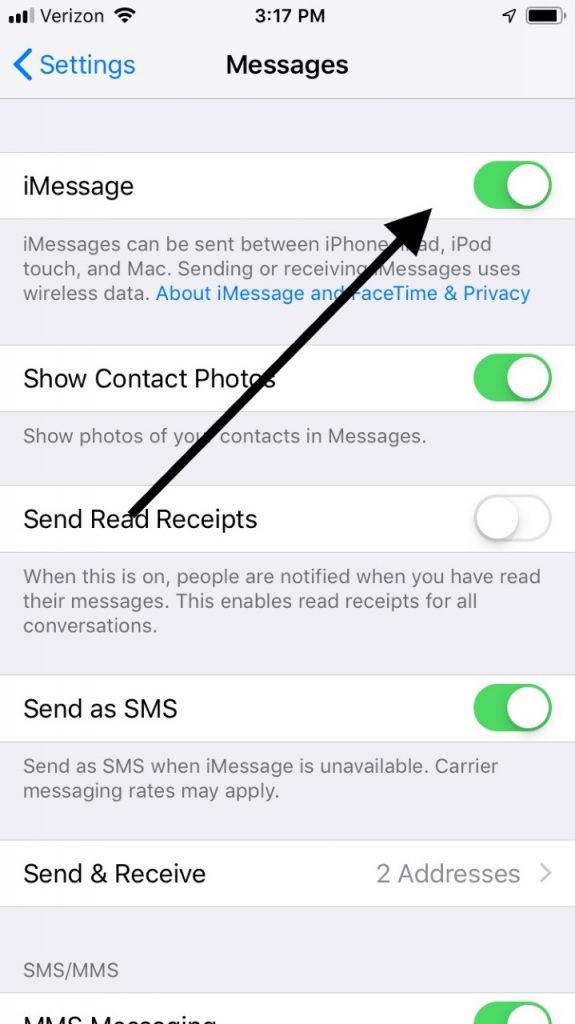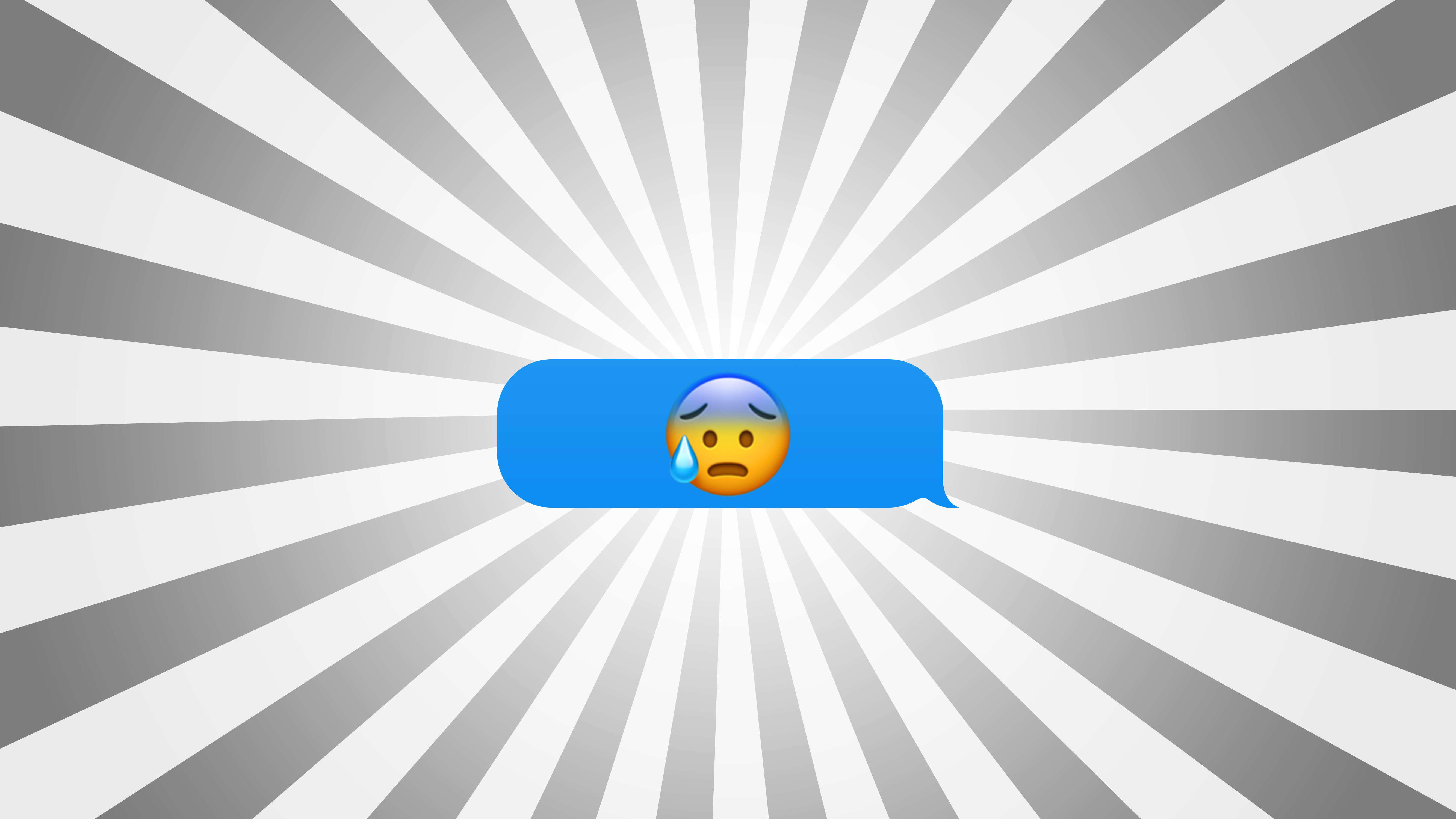- To turn on Messages in iCloud, make sure that you've set up iCloud and are signed in with the same Apple ID on all your devices. You also need to use two-factor authentication with your Apple ID, and turn on iCloud Keychain. On your iPhone, iPad, or iPod touch.
- On iPhone, iPad, or iPod touch, go to Settings Messages, then turn on iMessage. On your Mac, open Messages, then do one of the following: If you’re signing in for the first time, enter your Apple ID and password, then click Sign In.
- Imessage Log In
- Apple Imessage Sign In Windows
- Turning On Imessage On New Phone
- Turning On Imessage
- Turning On Imessage On Mac
- Turning On Imessage
Turn iMessage on or off. From the home screen, select the Settings app. Note: iMessages are billed as data usage when sent over a cellular data connection. Messages will be billed as text messages when sent to other device types, or to iOS devices using an earlier version of iOS. You need a valid phone number or Apple ID to use iMessage on.
- Part 1: How to Know If Someone Has Blocked You on iPhone
- Part 2: How to Recover iMessage on iPhone
- Part 3: How to Activate iMessage for iPhone
- Part 4: How to Send iMessage on iPhone
- Part 5: How to Block iMessage on iPhone
Recover your data from iPhone to computer easily.
- Stuck in Recovery Mode
- Black Screen
- White Screen
- Red Screen
- Blue Screen
- HeadPhone Mode
- Stuck on Apple Logo
- DFU Mode
- A Frozen iPhone
- Stuck in Boot Loop
- Unlock Failure
Imessage Log In
iMessage is a built-in instant messaging service, which Apple Inc. released to let you send and receive text, image, videos, document, location, etc. with Apple users. And you can use it to make the payment from this year on.
It might be the most frequent app you use on iPhone in daily life.
So,
How can you use iMessage app? You might need an iMessage ultimate guide. Now let's move to how to know if someone has blocked you on iPhone.
Part 1. How to Know If Someone Has Blocked You on iPhone
There are different methods to confirm whether you have been blocked or not.
Option 1. Check the iMessage Color You Sent
If you have sent iMessage with other Apple users before, you should know about that there are two colors for Messages. iMessages are in color blue, SMS texts are green.
It is not definite that you have been blocked by a simple color sign, as you know, there are different reasons to cause sending SMS texts instead of iMessage.
For example, the network of iPhone doesn’t work, then the iMessage you sent will be revert back as a green text message directly.
There is a method you can try to confirm if you have been blocked by someone.
Step 1Please confirm that your network of iPhone is work and the receiver is using iPhone or other Apple devices.
Step 2Send an iMessage out, and observe whether that color of iMessage will be changed from blue to green or not.
As you might probably know, there is a piece of small status information under the iMessage you sent. It also can be a sign you can know if others have blocked you.

Option 2. Check the iMessage Status You Sent
There is a setting in Message app for iMessage, which is called Send Read Receipts, to notify people when you have read their messages.
If the iMessages have been sent to the receivers but they have not read them, the Delivered sign will be shown under the iMessages.
As the default setting of the Send Read Receipts is ON, so you usually can see a Read word under the iMessage you sent once the receiver read it. In some cases, you can not get the Read status might because they have turned off the option.
Well, What happens if the receiver has blocked you?
Although there is a small percent that he/she turned off the Send Read Receipts function, you might have been blocked if the iMessage you sent stays blue saying Delivered but never turns to Read.
Option 3. Check the iMessage Status on MacBook
There are some tips you can try to use if you have a MacBook. Send an iMessage on neither iPhone or MacBook, and then check the status. On iPhone, it always shows a Delivered under the message, while it shows nothing if you have been blocked.
Part 2. How to Recover iMessage on iPhone
There will be many iMessages are stored on iPhone if you like iMessage app. It is no doubt that you don’t want to encounter data loss during the process of sending and receiving iMessage on iPhone.
The best bet to ensure data safe is backing up iPhone data regularly. So that you can restore iPhone data from backup file easily.

But,
What should do you don’t have a backup file at all?
Actually, the lost data will be stored on iPhone but invisible for users. You should stop using device immediately. You need FoneLab iPhone Data Recovery, which can help you get the lost data back from device directly.
FoneLab iOS System RecoveryFoneLab enables you to fix iPhone/iPad/iPod from DFU mode, recovery mode, Apple logo, headphone mode, etc. to normal state without data loss.
- Fix disabled iOS system problems.
- Extract data from disabled iOS devices without data loss.
- It is safe and easy to use.
Below is a systematic tutorial.

Step 1Download and install the software on the computer, and then it will be launched automatically.
Step 3Connect your device to the computer, tap Trust on your device home screen if it pops up on your computer. The program will begin to scan your device data once it detects your device.
Step 4Your data will be displayed on the interface, tick the content you want to get back.
Step 5Click Recover.
There are different options you can choose to recover iPhone data, I am sure that FoneLab will be the best choice for you.
Why not download and have a try now!
Part 3. How to Activate iMessage for iPhone

Most of the iPhone beginners are not familiar with iMessage app, so that they have no idea how to start to use it.
Some of them have trouble to send iMessage instead of SMS. Therefore, we will introduce how to set up iMessage on iPhone.
Step 1Launch the Settings app on your iPhone.
Apple Imessage Sign In Windows
Step 2Tap on Messages.
Step 3Turn iMessage On and wait.
iMessage will be sent as a text on iPhone without a network connection. Someone will wonder how to send SMS rather than iMessage after settings.
Actually, you can just disconnect the network connection or follow above-mentioned step to deactivate the iMessage app on iPhone Settings app easily.
Part 4. How to Send iMessage on iPhone
Sending iMessage is the same as a text message on iPhone after enabling the feature through Settings.
Step 1Launch the Messages app.
Turning On Imessage On New Phone
Step 2Tap Edit icon in the upper-right corner.
Step 3Enter a number who using iPhone or other iOS devices.
Step 4Type the content you want to send, and then tap the send icon on the right side.
This iMessage feature also allows you to send and receive text and multimedia information and use stickers, emoji, animations with other Apple users who are using iPhone, iPad, iPod touch, etc.
Part 5. How to Block iMessage on iPhone
Got sick of receiving iMessage from the sender?
You can bock someone via the Message on iPhone.
Step 1Open Message on your computer.
Step 2Go to conversation > info icon.
Step 3Tap the name on the top, and then scroll down to find Block this Caller.
Step 4Tap Block Contact on the pop-up options.
If you change your mind in the near future, you can also repeat the same steps to unblock the contact within a few taps.
That's all. If you have more questions about iMessages or others, please leave comments or send emails for further information.
- How to Unlock a Disabled iPhone
- How to Fix iPad Stuck on Apple Logo
- How to Get iPhone Out of Recovery Mode
Turning On Imessage
You can use the Messages app on your iPhone, iPad, or iPod touch to send messages. Those messages are sent as iMessage or SMS/MMS. Learn more about the difference between the message types.
iMessage
iMessages are texts, photos, or videos that you send to another iPhone, iPad, iPod touch, or Mac over Wi-Fi or cellular-data networks. These messages are always encrypted and appear in blue text bubbles. To turn iMessage on or off, go to Settings > Messages.
Turning On Imessage On Mac
SMS/MMS
If you aren’t using iMessage, you can use SMS/MMS. These messages are texts and photos that you send to other cell phones or another iPhone, iPad, or iPod touch. SMS/MMS messages aren't encrypted and appear in green text bubbles on your device.
Turning On Imessage
To use SMS/MMS on an iPhone, you need a text-messaging plan. Contact your wireless carrier for more information. You can also set up your other Apple devices to send and receive messages from any Apple device.
If Wi-Fi is unavailable, iMessages will be sent over cellular data. Cellular data rates might apply.
